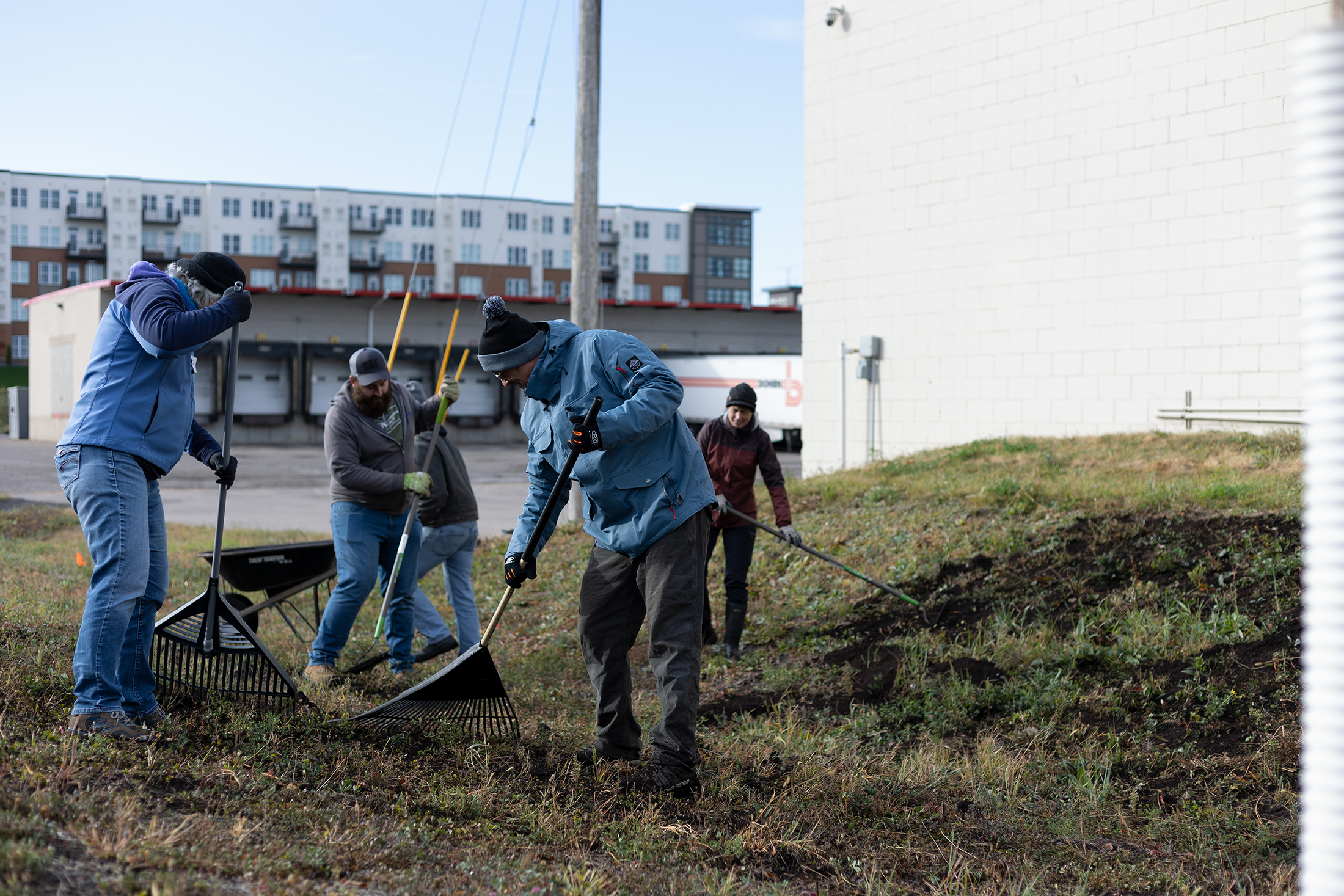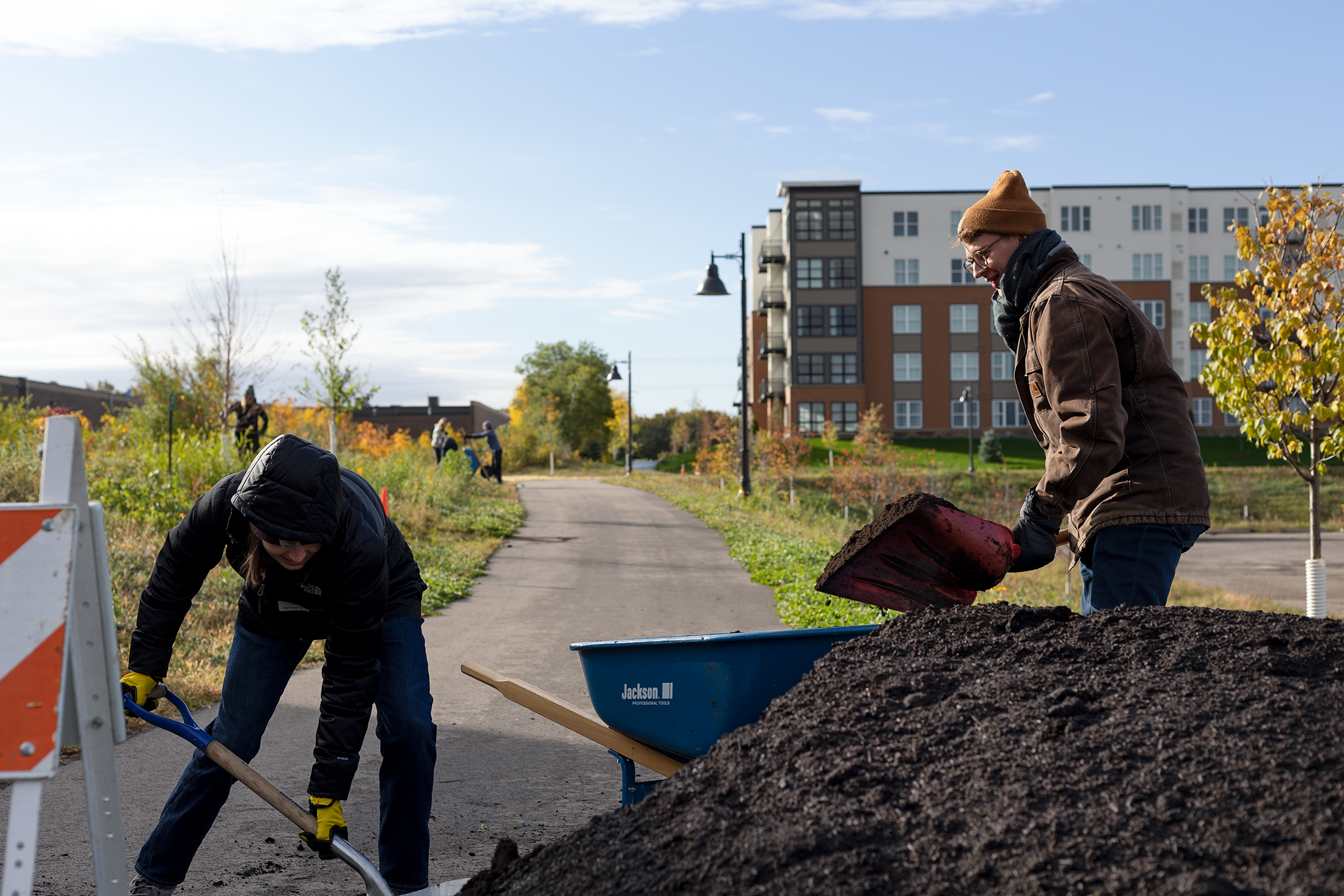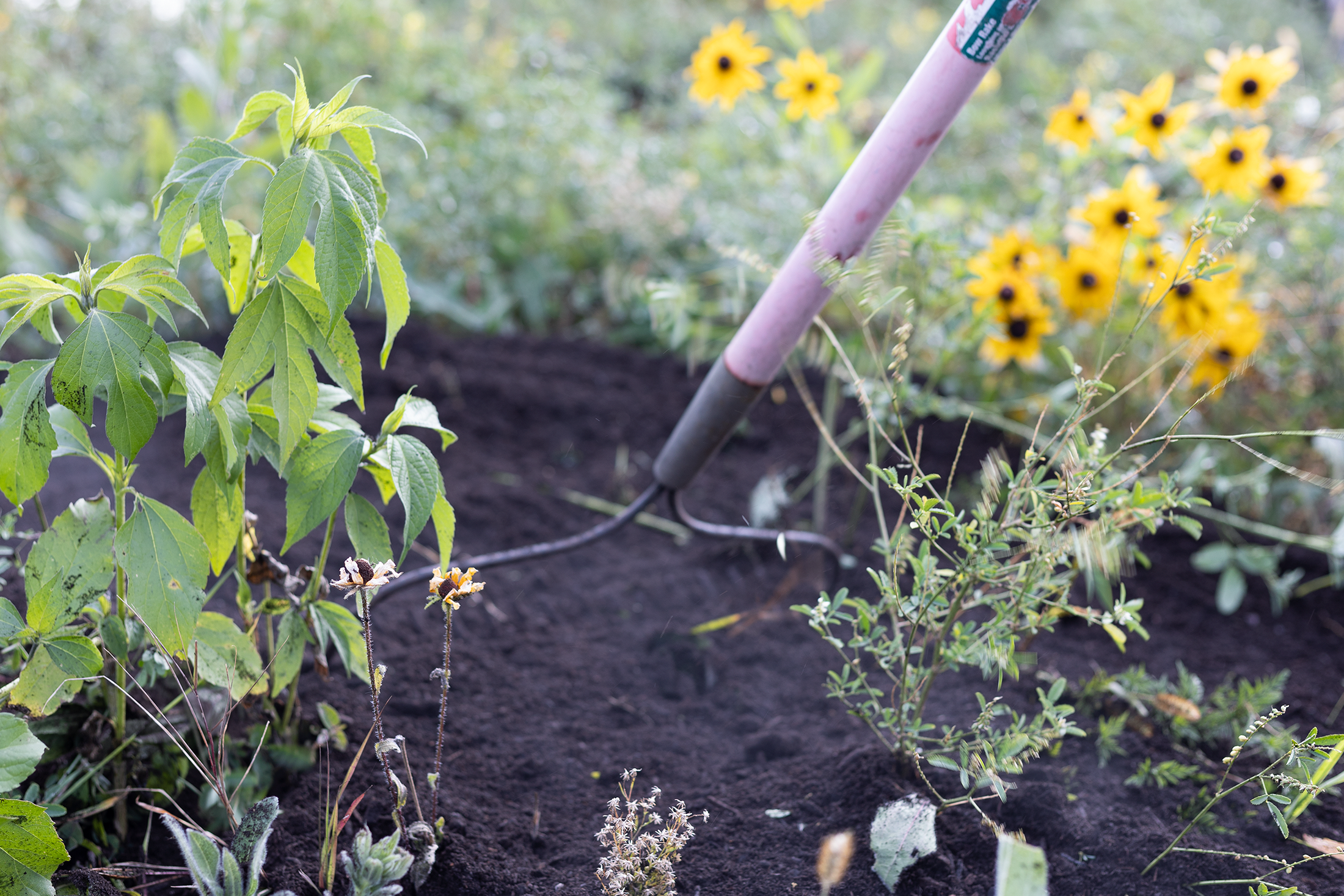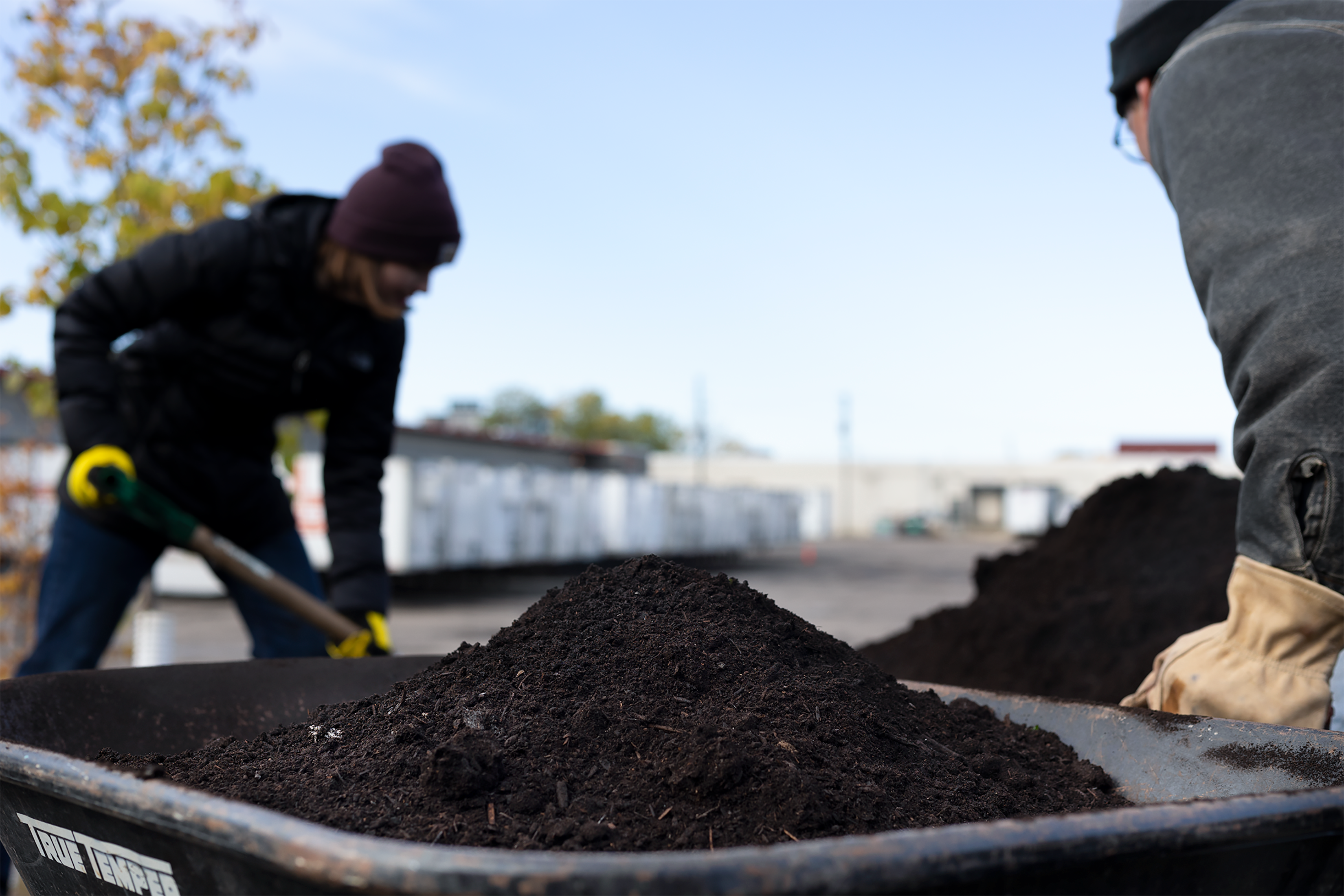The City of Roseville is studying the positive effects of compost dressing and Alliant’s Senior Environmental Specialist, David Bauer, is leading the program.
A full year into our three-year study, Alliant held the second compost-spreading event for the City of Roseville. The project, located along Twin Lakes Trail, is being used to showcase how better soil health in urban areas leads to drought tolerance, increased infiltration (less stormwater runoff), and increased organic matter. Sequestering carbon in degraded soils is a great way for communities to meet climate change goals while turning compost into an asset.
On October 15, despite the cold weather, volunteers showed up to spread, and rake compost. Those who attended the event last year could see the stark difference the compost has already made. The trail is now home to flowers, grass, and pollinators.
“This study is going very well and has already yielded interesting results. Even without data, one can see the composted areas have taller and healthier vegetation. The volunteers have been enthusiastic, and the City has been very supportive.”
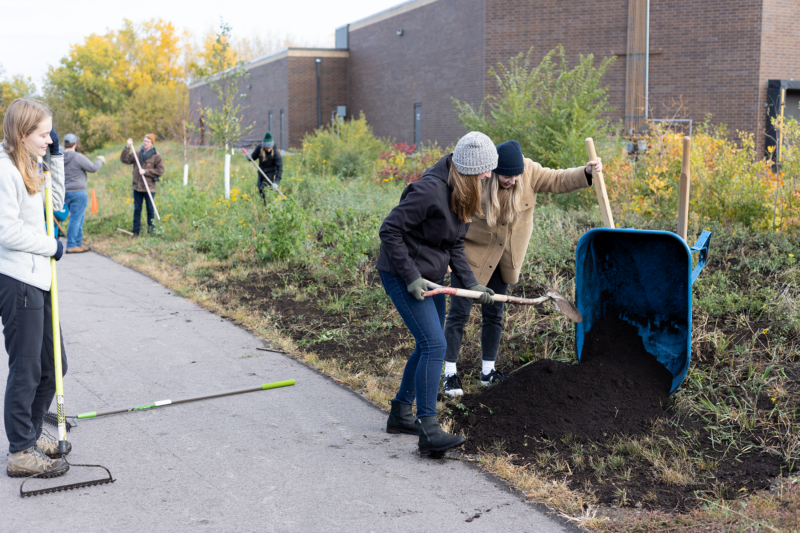
Alliant employee-owners moving the compost onto the grass to begin spreading
Building soil health is something that is easy to do in all neighborhoods, regardless of economic status. The United Nations did a study with Ohio State University that estimated CO2 could be lowered by 50 ppm if the world built up degraded soils. The compost spreading will be repeated during the fall of next year, completing the three-year study. The data collected will be used to gauge the effects of the compost. Once our analysis is complete, data and results will be shared at conferences, and in a summary report to help others make decisions on their use of compost.
To learn more about this study, contact David Bauer – dbauer@alliant-inc.com

